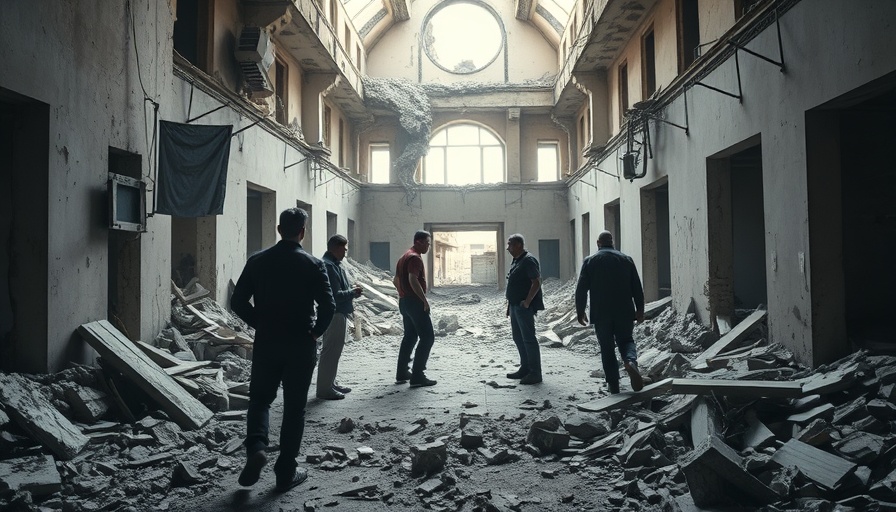
Escalating Tensions: The Recent Missile Strikes Explained
On May 6, 2025, the relationship between India and Pakistan reached a dangerously high point as India launched missile strikes into Pakistani-controlled territory, resulting in the deaths of at least eight individuals, including a child. This aggressive action was characterized by Pakistan's Prime Minister Shehbaz Sharif as an "act of war," reflecting the extreme volatility in a region already rife with animosity.
The Context Behind the Conflict
This escalation follows tragic events in India-controlled Kashmir where a recent massacre of tourists has been attributed to militants allegedly supported by Pakistan. India stated that these missile strikes targeted infrastructure used by these militants, aiming to prevent further violence. Such justification can often lead to retaliatory measures, raising concerns about the cycle of violence that has historically plagued these two nuclear-armed neighbors.
The Human Cost of War
In the aftermath of the strikes, the landscape was marred with reports of civilian casualties and destruction. Images from the regions struck by missiles show devastated buildings and rescue workers battling to save lives amid the chaos. The emotional toll on families directly affected is immeasurable, raising questions about the human cost of military engagements.
Regional and Global Concerns Over Escalation
Analysts like Michael Kugelman emphasize that this attack represents one of India’s most significant military actions towards Pakistan in years and speculates on the intensity of Pakistan's likely response. The United Nations has expressed deep concern over the escalation, with Secretary-General Antonio Guterres urging both nations to exercise the utmost military restraint. The potential for a larger conflict looms as neither side appears willing to back down.
Regional Military Dynamics
The military capabilities of both nations have drastically evolved since their independence in 1947. Despite the presence of nuclear arsenals designed as deterrents, both nations have not hesitated to employ conventional military force in their long-standing conflict. This recent flare-up highlights the very real risks of miscalculations that could lead to a wider war.
Past Conflicts: Lessons Learned or Forgotten?
Historically, conflicts between India and Pakistan have often been ignited by mutual accusations and retaliations. Remembering 2001 and 2008, the attacks in Mumbai and the resulting military incursions illustrate how quickly tensions can escalate when both sides are not prepared to engage diplomatically. The world is reminded that effective communication and diplomatic channels are critical to prevent spiraling into broader conflicts.
Path Forward: The Imperative for Dialogue
In light of this event, calls for dialogue and diplomacy have grown louder, with leaders and analysts pointing to the necessity for both nations' leaders to engage in meaningful discussions that prioritize peace over aggression. Steps toward rebuilding trust are essential to break the cycle of violence that has defined much of their relationship.
How Citizens Can Participate in Change
As global citizens observe and respond to these developments, it's vital to advocate for peace and support organizations aiming for conflict resolution. Knowledge and awareness enable individuals to understand the stakes involved and promote community discussions that foster unity rather than division.
In conclusion, the recent missile strikes into Pakistani territory underscore an alarming surge in hostilities between two nuclear nations. As the world watches, it's imperative for citizens engaging with this issue to demand accountability, clarity, and a vested interest in navigating a peaceful resolution to this long-standing conflict.
 Add Row
Add Row  Add
Add 






Write A Comment